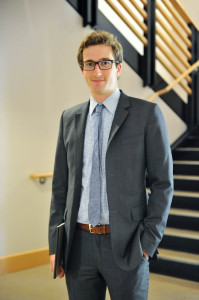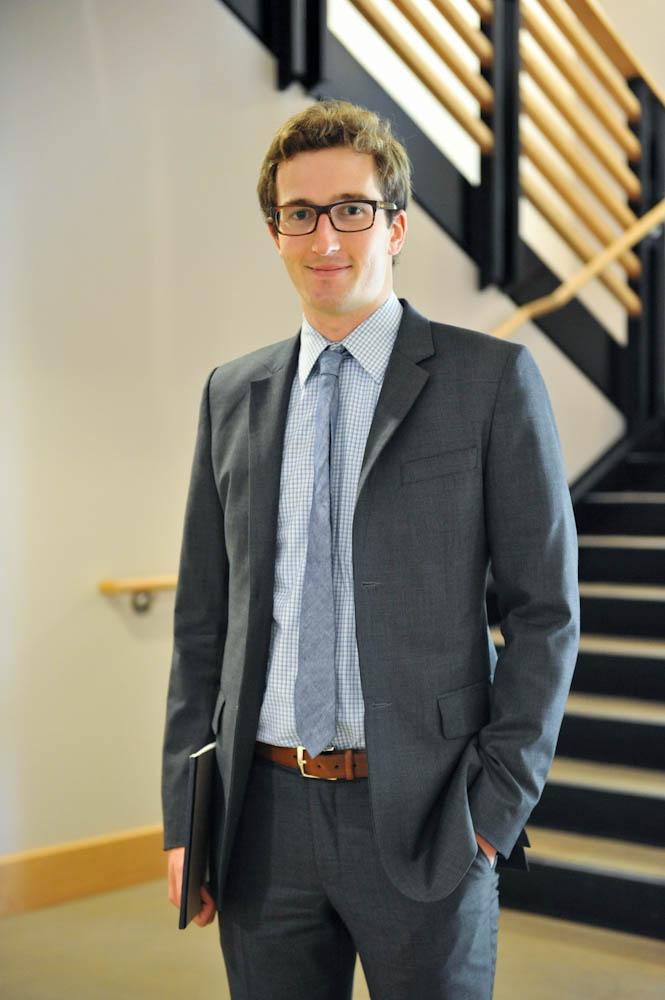Finance and consulting are among the most popular careers for Stanford students after graduation, but the interview process for positions in these highly competitive fields is notoriously challenging. The Stanford Career Development Center (CDC) and student organizations including Stanford Finance and Stanford Consulting provide a variety of resources for Stanford students preparing for these interviews.
The Stress Test
For many juniors and seniors, applying for jobs in these industries during fall quarter is akin to taking to an additional class. With weekly interviews — sometimes two or three per company — involving case studies and other mental tests, preparing for the interview process can be quite stressful.

“The interview process is very challenging,” said Julia Schottenstein ’14, CEO of Stanford Finance. “They are definitely trying to test you, to put you in high pressure situations because the job itself is pretty stressful. They are trying to gauge how you think on your feet and how well you know your finance technicals before you even start the job.”
In fact, taking a lighter course load in order to maximize preparation time is a serious consideration for applicants.
“Before I went into my interviews, I didn’t realize how much you actually need to know going into the [interview] process,” Schottenstein said. “They expect that you are ready and up to speed to start your job as an analyst.”
According to some students, however, the actual test comes when you receive a question you didn’t prepare for.
“The worst thing that can happen in an interview is to have something unexpected,” said Publio Adrianza ’15, Managing Director of Stanford Consulting.
Eric Feldman ’14 has interviewed for positions in both finance and consulting.
“There is a set of questions that you can reasonably expect, and then there are some off-the-wall questions,” he said. “In order to do well, you have to be good at improvising, which takes a certain degree of social awareness.”
According to Schottenstein, it is not uncommon for interviewers to try and trick applicants with difficult or out-of-the-box questions.
“There have definitely been times in interviews where they give you trick questions or expect you to do complicated mental math on the spot,” Schottenstein said. “Sometimes they are seeing if you can do the mental math, other times they are seeing what your thought process is when you’re not fully equipped to solve the problem quite yet.”
Feldman also described some of the differences between finance and consulting interviews.
“The interviews in the consulting process are more conducive to testing your problem solving skills,” he said. “In finance, if you get a book, you can study the formulas and get it. There is some critical thinking involved, but less so [than in consulting].”
The Career Development Center
To help students prepare for the rigorous finance and consulting interview process, the Stanford Career Development Center (CDC) offers a variety of free interview preparation services for students, including mock interviews with CDC counselors, interview workshops and access to online tools, including Vault Career Insider and InterviewStream. The CDC also maintains a list of frequently-asked interview questions and other resources on its website.
Vault Career Insider provides a large collection of information for job seekers in a variety of fields, including finance and consulting. Access includes free download of the popular Vault Guides for job seekers, including the “Vault Guide to the Case Interview” for consulting roles and the “Vault Guide to Finance Interviews.”
“The Vault Guide will tip you off on common questions to prepare [for finance interviews],” Schottenstein said. “It’s a pretty comprehensive guide on the basic questions or topics you need to know about walking into a finance interview.”
InterviewStream allows users to practice pre-recorded mock interviews, using their webcam to record their performance for self-evaluation. The tool also lets interviewees share their recordings with friends and family for feedback.
Some of Stanford’s peer institutions have developed programs to encourage student-to-student mentorship and preparation. For example, Yale Undergraduate Career Services’ website invites students to share internship evaluations and reflections on their interview experiences for the benefit of other students, while the Wharton School of Business pays 20 to 30 current MBA students to lead mock interviews of students during an annual career readiness event.
Barbara Hewitt, senior associate director of career Services for undergraduates of the Wharton School of Business, explained that Wharton’s program was started to meet the high demand for traditional mock interviews with career advising staff.
“A lot of our recruiting is front-loaded in the fall for seniors and in the spring for underclass students for internships,” she said, “so we have found it really difficult to fit enough [mock interviews] in, because there’s just not enough time once the semester gets going.”
Student Organizations
Two student groups, Stanford Finance and Stanford Consulting, provide opportunities for students to practice for interviews, network with current industry members and gain exposure to the work and topics typically encountered at finance and consulting firms.
Stanford Finance holds events to help members meet and get to know people currently working in the finance industry before they formally begin the interview process.
“We have a really strong mentorship program,” said Schottenstein. “All of our analysts get paired with a mentor on the board.”
“[Networking] is really important in finance,” Schottenstein added. “Before I went through recruiting, I thought that if I had good grades or if I just checked off a few certain boxes, I could just hand in my resume and get through the interview process. In finance, it’s a lot more about who you know in the industry.”
Stanford Consulting, on the other hand, aims to give its members hands-on exposure to consulting work long before they begin the interview process.
“Traditionally, we have focused a lot on working with partner companies to actually work with them on business issues and help provide recommendations to them and help with problems that they have,” said Vivian Shen ’14, CEO of Stanford Consulting and former McKinsey & Company intern. “What I’ve found is that actually mirrors the experience that you have at a real firm pretty similarly.”
Shen said that Stanford Consulting exposes its members to as many business cases as possible. “The more cases you look at, the more business problems you have in your arsenal that you think of when someone asks you a question,” she said. “And if you’ve seen something similar to it before, it’s not as frightening, and you’ll have an idea of how you’ll attack the problem.”
Landing the Job
Most finance and consulting firms have two independent interview processes: a process for summer internships, targeted principally at current juniors, and a separate process for current seniors interested in full-time positions after graduation.
Ordinarily, consulting firms interview juniors during the winter quarter for summer internships and seniors during the fall quarter for full time positions.
Most finance firms interview juniors during fall and winter quarters for summer internships. After soliciting resumes, firms may conduct an initial phone screening before inviting applicants to a first-round interview. According to Schottenstein, many New York firms will fly applicants to New York for a day to interview in person. Successful candidates are often invited back for a “super day” of multiple second-round interviews.
The interview process can be particularly rigorous for those who do not follow the typical summer internship track into a full time position with the same firm. “I met with 30 plus bankers before I was offered a position,” Schottenstein said of her experience applying at Qatalyst Partners following her summer internship at Morgan Stanley.
And the final result — full-time finance positions — are typically offered to selected interns in the middle of fall quarter of senior year or at the end of their junior summer.
“At the end of [the internship], you either get an offer to return or you don’t,” Schottenstein explained.
Contact Sam Kurland at kurlands ‘at’ stanford.edu.
